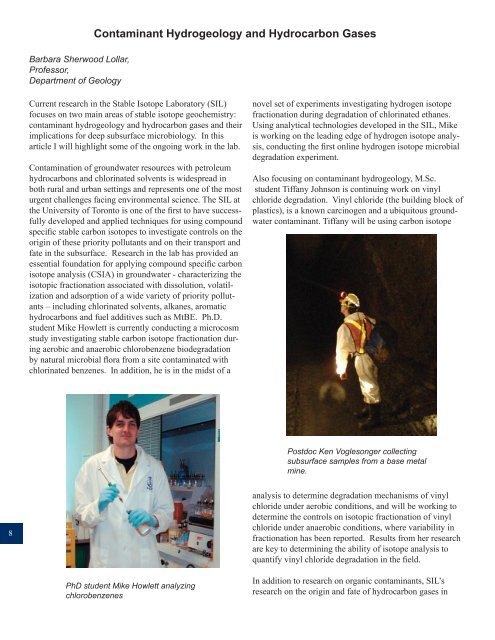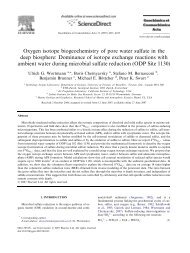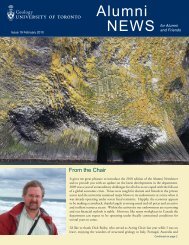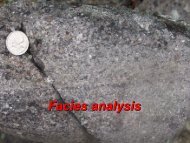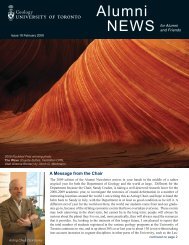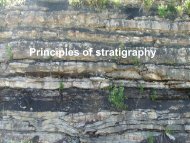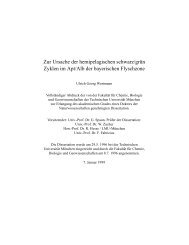13000_final3.ps, page 1-20 @ Normalize ( 13000_final.indd )
13000_final3.ps, page 1-20 @ Normalize ( 13000_final.indd )
13000_final3.ps, page 1-20 @ Normalize ( 13000_final.indd )
You also want an ePaper? Increase the reach of your titles
YUMPU automatically turns print PDFs into web optimized ePapers that Google loves.
Barbara Sherwood Lollar,Professor,Department of GeologyContaminant Hydrogeology and Hydrocarbon GasesCurrent research in the Stable Isotope Laboratory (SIL)focuses on two main areas of stable isotope geochemistry:contaminant hydrogeology and hydrocarbon gases and theirimplications for deep subsurface microbiology. In thisarticle I will highlight some of the ongoing work in the lab.Contamination of groundwater resources with petroleumhydrocarbons and chlorinated solvents is widespread inboth rural and urban settings and represents one of the mosturgent challenges facing environmental science. The SIL atthe University of Toronto is one of the first to have successfullydeveloped and applied techniques for using compoundspecific stable carbon isotopes to investigate controls on theorigin of these priority pollutants and on their transport andfate in the subsurface. Research in the lab has provided anessential foundation for applying compound specific carbonisotope analysis (CSIA) in groundwater - characterizing theisotopic fractionation associated with dissolution, volatilizationand adsorption of a wide variety of priority pollutants– including chlorinated solvents, alkanes, aromatichydrocarbons and fuel additives such as MtBE. Ph.D.student Mike Howlett is currently conducting a microcosmstudy investigating stable carbon isotope fractionation duringaerobic and anaerobic chlorobenzene biodegradationby natural microbial flora from a site contaminated withchlorinated benzenes. In addition, he is in the midst of anovel set of experiments investigating hydrogen isotopefractionation during degradation of chlorinated ethanes.Using analytical technologies developed in the SIL, Mikeis working on the leading edge of hydrogen isotope analysis,conducting the first online hydrogen isotope microbialdegradation experiment.Also focusing on contaminant hydrogeology, M.Sc.student Tiffany Johnson is continuing work on vinylchloride degradation. Vinyl chloride (the building block ofplastics), is a known carcinogen and a ubiquitous groundwatercontaminant. Tiffany will be using carbon isotopePostdoc Ken Voglesonger collectingsubsurface samples from a base metalmine.8analysis to determine degradation mechanisms of vinylchloride under aerobic conditions, and will be working todetermine the controls on isotopic fractionation of vinylchloride under anaerobic conditions, where variability infractionation has been reported. Results from her researchare key to determining the ability of isotope analysis toquantify vinyl chloride degradation in the field.PhD student Mike Howlett analyzingchlorobenzenesIn addition to research on organic contaminants, SIL’sresearch on the origin and fate of hydrocarbon gases in


